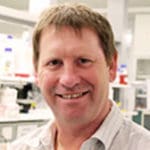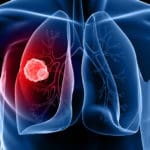Type: Lung cancer

Dr Teh and her team are developing a novel approach to immunotherapy that targets a different type of white blood cell, called a regulatory T cell. This project aims to target ‘suicide genes’ to kill regulatory T cells that are surrounding the tumour.

Dr Koay and her team are developing a novel type of immunotherapy which targets a specialised subset of T-cells which possess the potential to attack cancer more effectively than existing T-cell immunotherapies.
Associate Professor Thomas Cox and his team have identified a molecule in the lung tissue matrix called ‘Collagen IV’, which helps to control the behaviour of lung cancer cells.

Recent research has found that androgens (such as testosterone) can activate an important anti-cancer immune response in prostate cancer cells.

Research shows 100,000 lung cancer deaths could be avoided this century if smoking rates are reduced to 10% by 2025.

This project will focus on developing adaptive radiotherapy for locally advanced lung, prostate and oligometastatic cancer.

This is one of the first studies in Australia and the world looking at the role of gut bacteria in lung cancer development and progression.

A world-first study has revealed that tobacco companies use Twitter to positively shape their public image.

Research at Cancer Council NSW has shown that Australia’s lung cancer mortality rates are in decline.

The project has strong potential to achieve major benefits for patient care, because it brings the concept of personalised medicine much closer to reality.